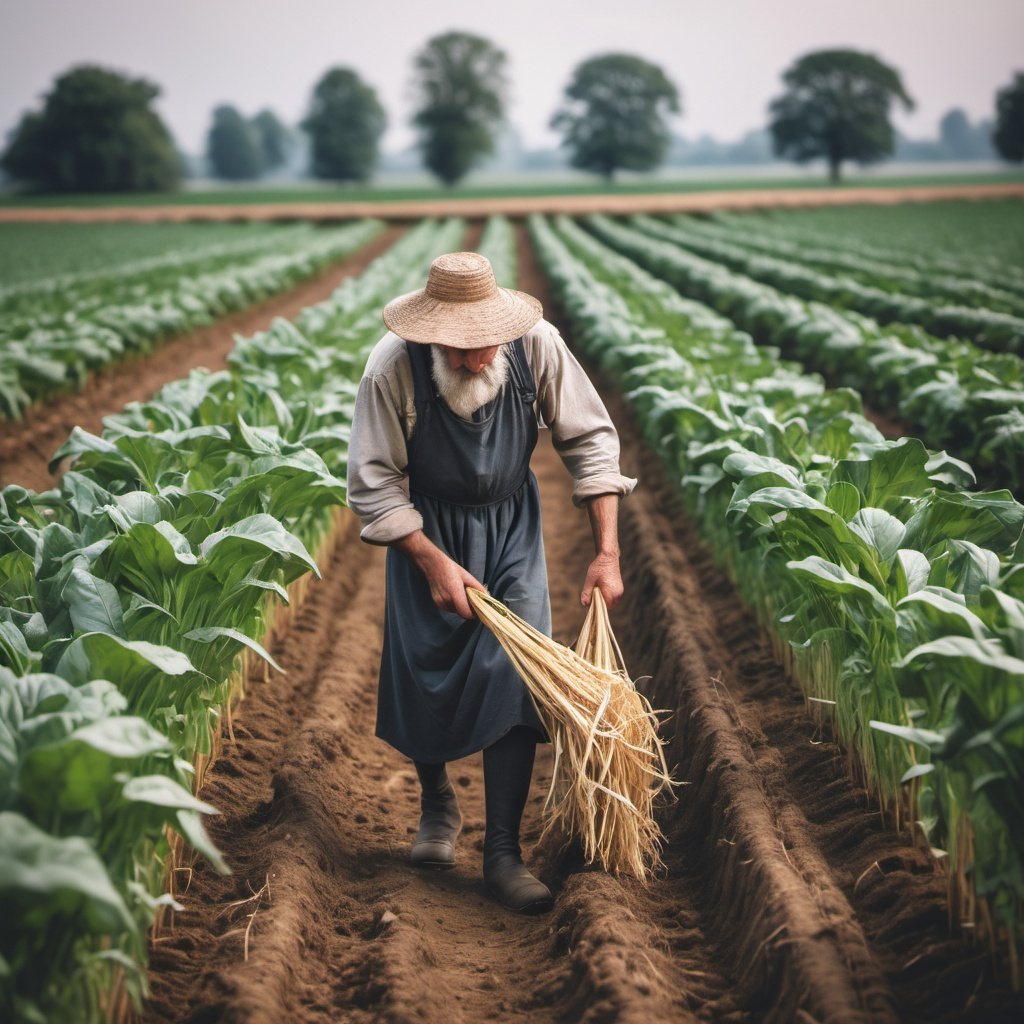
Agriculture has been an essential part of human civilization, shaping the social, economic, and environmental landscapes of the world. The story of agriculture is a tale of human innovation, survival, and adaptation, spanning thousands of years and various regions. From the early hunter-gatherer societies to modern industrial farming, the development of agriculture has played a crucial role in human history.
The Pre-Agricultural Era
Before the advent of agriculture, human societies were predominantly hunter-gatherers. These early humans survived by hunting animals and foraging for edible plants, nuts, and berries. This lifestyle allowed for mobility, as groups moved from place to place in search of food. However, this method of subsistence was unstable and dependent on the availability of natural resources.
The shift towards agriculture began with the end of the last Ice Age, around 12,000 years ago. As the climate became warmer and more stable, humans began to experiment with the cultivation of plants and the domestication of animals. This transition from a nomadic to a settled lifestyle marked the beginning of the agricultural revolution.
The Neolithic Revolution
The Neolithic Revolution, which occurred around 10,000 BCE, is considered one of the most significant turning points in human history. During this period, humans began to domesticate plants and animals, leading to the development of permanent settlements and the rise of early farming communities.
One of the earliest regions to adopt agriculture was the Fertile Crescent, located in the Middle East. This region, which includes parts of modern-day Iraq, Syria, and Turkey, was home to some of the first domesticated crops, such as wheat, barley, lentils, and peas. The domestication of animals such as sheep, goats, and cattle also began in this region, providing a stable source of food, labor, and materials like wool and leather.
Agriculture spread gradually to other parts of the world. In China, rice and millet were cultivated as early as 7000 BCE, while maize (corn) was domesticated in Mesoamerica around 5000 BCE. Similarly, South America saw the cultivation of crops like potatoes and quinoa, while Africa became the center for sorghum, millet, and yams.
Growth of Agricultural Societies
With the advent of farming, human societies began to transform. Agriculture allowed for a more reliable and consistent food supply, which led to population growth and the establishment of larger, more complex communities. This period saw the rise of the first cities and civilizations, including ancient Egypt, Mesopotamia, the Indus Valley, and China. These early civilizations were heavily dependent on agriculture, particularly the control of water resources through irrigation systems.
The development of irrigation techniques was crucial in regions with unpredictable rainfall, such as Egypt, where the Nile River played a vital role in supporting agriculture. Similarly, in Mesopotamia, between the Tigris and Euphrates rivers, complex irrigation systems allowed for the cultivation of crops in otherwise arid landscapes.
The growth of agricultural societies also led to the specialization of labor. As not everyone needed to be involved in food production, individuals could take on other roles, such as artisans, traders, and rulers. This social stratification and the accumulation of surplus food led to the development of more organized political structures, trade networks, and technological advancements.
Agricultural Advancements in the Classical Period
The classical period, which includes the civilizations of Greece, Rome, Persia, and others, saw continued advancements in agriculture. Roman agriculture, in particular, was highly developed, with sophisticated farming techniques, such as crop rotation, fertilization, and large-scale production. The Romans introduced new tools, such as the iron plow, which made farming more efficient, and established vast estates known as “latifundia,” where crops like wheat, olives, and grapes were cultivated for both local consumption and trade.
In Asia, particularly China, the Han Dynasty (206 BCE–220 CE) made significant contributions to agriculture. The introduction of iron tools, better irrigation systems, and improved rice cultivation techniques helped sustain the growing population. The Chinese also practiced intensive agriculture, using every available piece of land for farming, which led to greater yields.
Medieval Agriculture and Feudalism
During the medieval period in Europe, agriculture was the foundation of feudal societies. The manorial system, in which peasants worked on the land of a lord in exchange for protection, was prevalent. Crop rotation systems, such as the three-field system, were employed to maintain soil fertility and increase productivity. The use of heavy plows, watermills, and horse-drawn equipment became more widespread, boosting agricultural output.
In the Islamic world, agriculture flourished under the Abbasid Caliphate, with innovations in irrigation, crop cultivation, and soil management. Islamic scholars translated and preserved ancient agricultural texts from Greece and Rome, while also adding their own discoveries, such as new farming techniques and the introduction of crops like sugarcane, citrus fruits, and cotton.
The Agricultural Revolution of the Early Modern Period
The early modern period, particularly the 18th century, saw significant agricultural advancements in Europe. The Agricultural Revolution, which took place in Britain, was characterized by a series of innovations that increased agricultural productivity. Key developments included the enclosure movement, which consolidated small farms into larger ones; the introduction of new crop rotations; and selective breeding of livestock.
The invention of machinery, such as the seed drill by Jethro Tull, revolutionized the way crops were planted, leading to more efficient farming practices. These advancements contributed to the population growth in Europe and provided the necessary resources for the Industrial Revolution. Agriculture became more commercialized, with a focus on producing surplus food for urban markets.